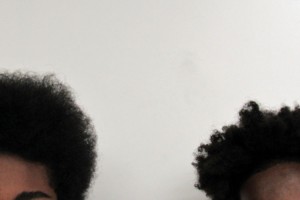The Greater Understanding of the Afro
October 14, 2015
Starting around 2014, I have noticed a natural hair movement within the black community near me in Greenbelt and surrounding areas.
I did not ever experience such a movement until I reached my teenage years. This movement, which empowers black Americans, it shows greater understanding and acceptance of our heritage. It really started during the 60s and became well known during the early 70s. The natural hair was viewed as black people accepting their roots.
The term “Afro” is usually connected to Afrocentrism. Merriam-Webster online dictionary defines Afrocentrism as “emphasizing or promoting emphasis on African culture and the contributions of Africans to the development of Western civilization”. Before the movement, black people tried to mimic the hairstyles white people had used. The Afro was labelled kinky, nappy, wooly, or coarse which led to a negative view on the style. The beginning of the African American Civil Rights movement started the appreciation of black hairstyles. In effect the famous quote “Black is beautiful” changed into a movement.

Marcus Garvey, a former political leader, argued that the black people should “remove the kinks from your mind, not your hair”, meaning you should not hide behind products to change who you are. Hair defines heritage, and so hair pride leads to the decision to not use chemicals, which have been known to cut hair when too hot, or pressing combs, which force roots to straighten and causes breakage. Media, and sometimes friends and family, often force people to believe that European style – straight or wavy – is the way we should all look, and in this force, the pressing comb and chemical relaxers became oppressive.
Now, some female students say they take pride in their natural hair.
Sophomore Reyhana Badarani described her afro as her “lion mane”. Badarani said she is proud of her Afro and proud to be an African American. I believe Badarani is stating that her hair is significant, and that among different races of people, it reveals her as African American and coming from a African American heritage.
Freshman Jazmin Locke said she wears her afro as a message, “to not be afraid” to break negative views and stereotypes.
Teachers also support the Afro movement.
Business education teacher Ms. DeVon Caldwell-Brown said she “loves her Afro, they are carefree.” She also said she “does not have to worry about flat ironing or curling her hair.”
An anonymous teacher wondered why“Afro American people want to flat iron their hair” and explained “I would love to have that hair.”
How can we change society’s view on Afros or natural hair when the stereotypes have been around for generations? Men and women should educate one another to not be afraid to let their lion manes out. Be proud of your heritage.
Having adults support the Afro style also affects the minors around them by setting good examples. Hair pride changes the way people view their hair and, in effect, causes people to become carefree and love themselves.




Lillian Boayue • Oct 14, 2015 at 7:52 pm
Brilliantly written. I remember my high school days when I wore only Afro. I had the best Afro in the senior class (mid 70s). Wow.